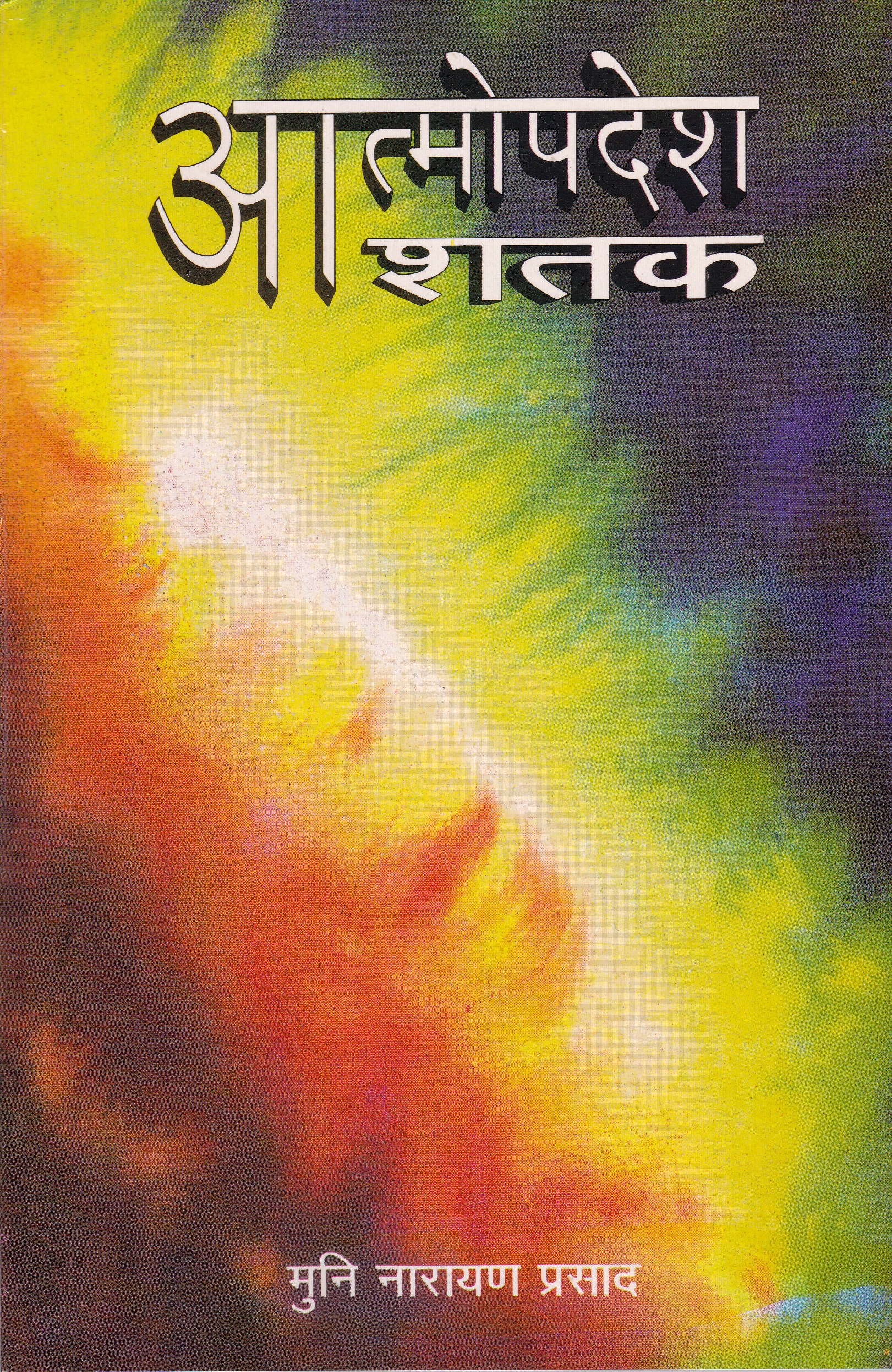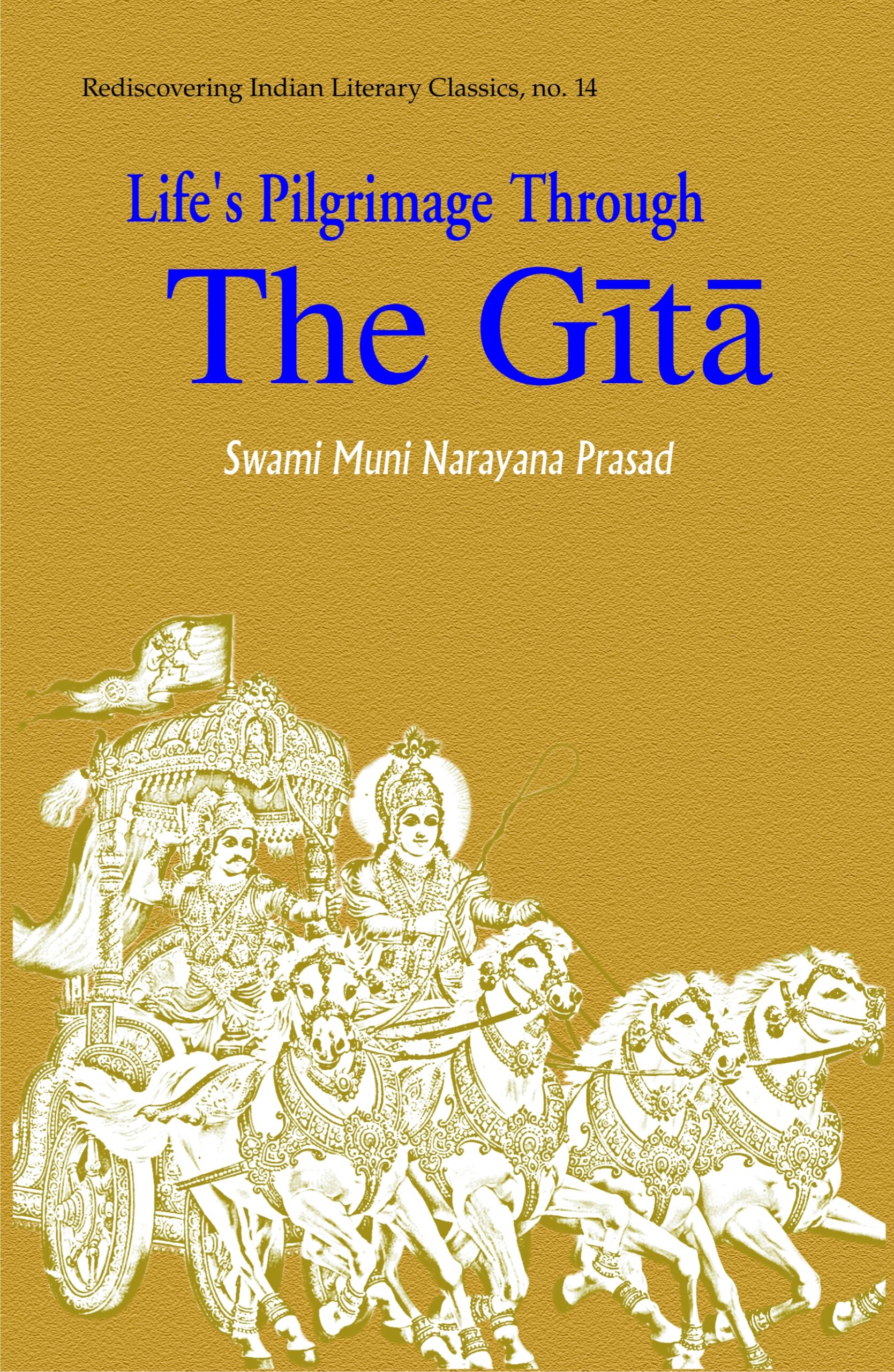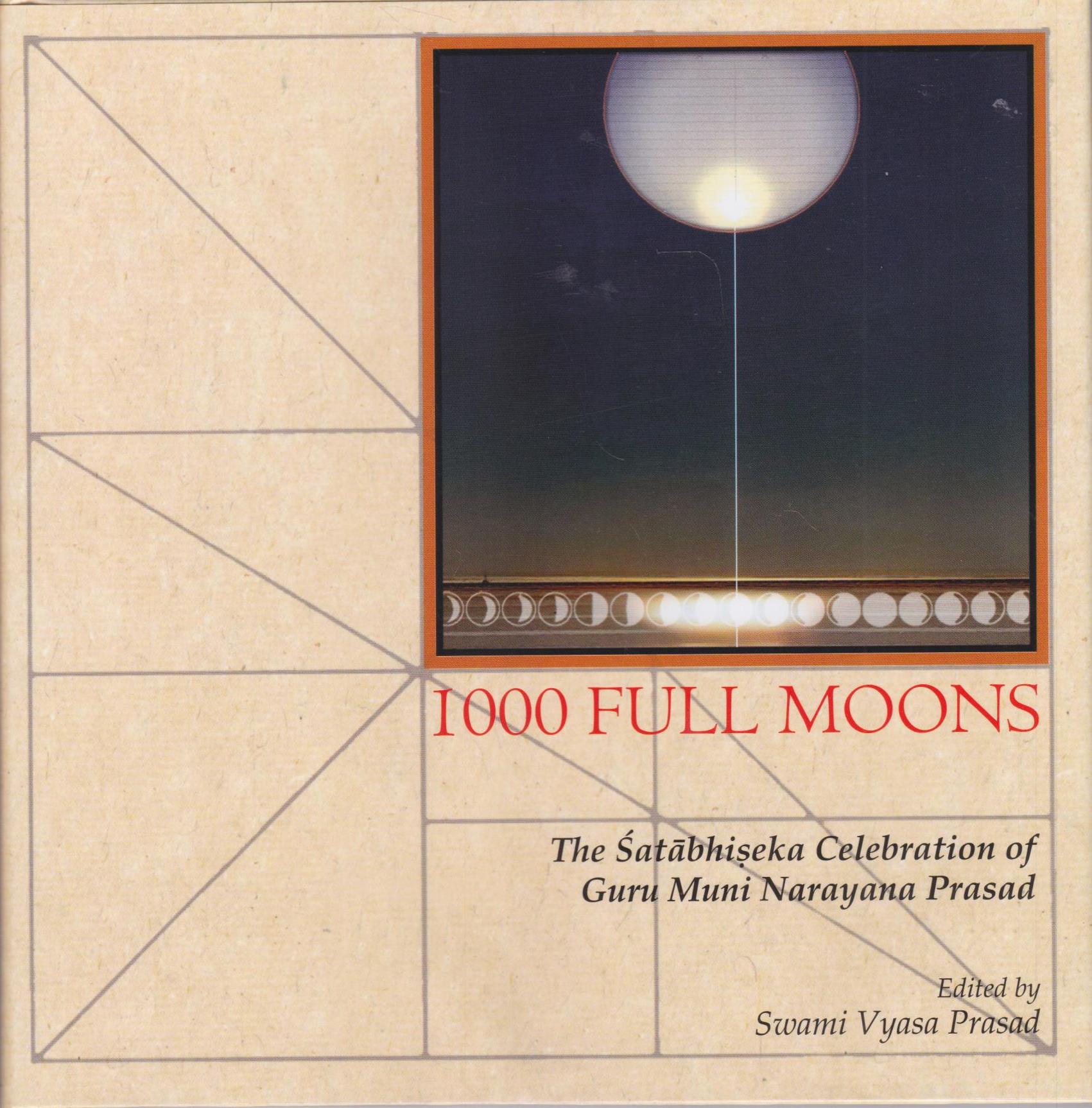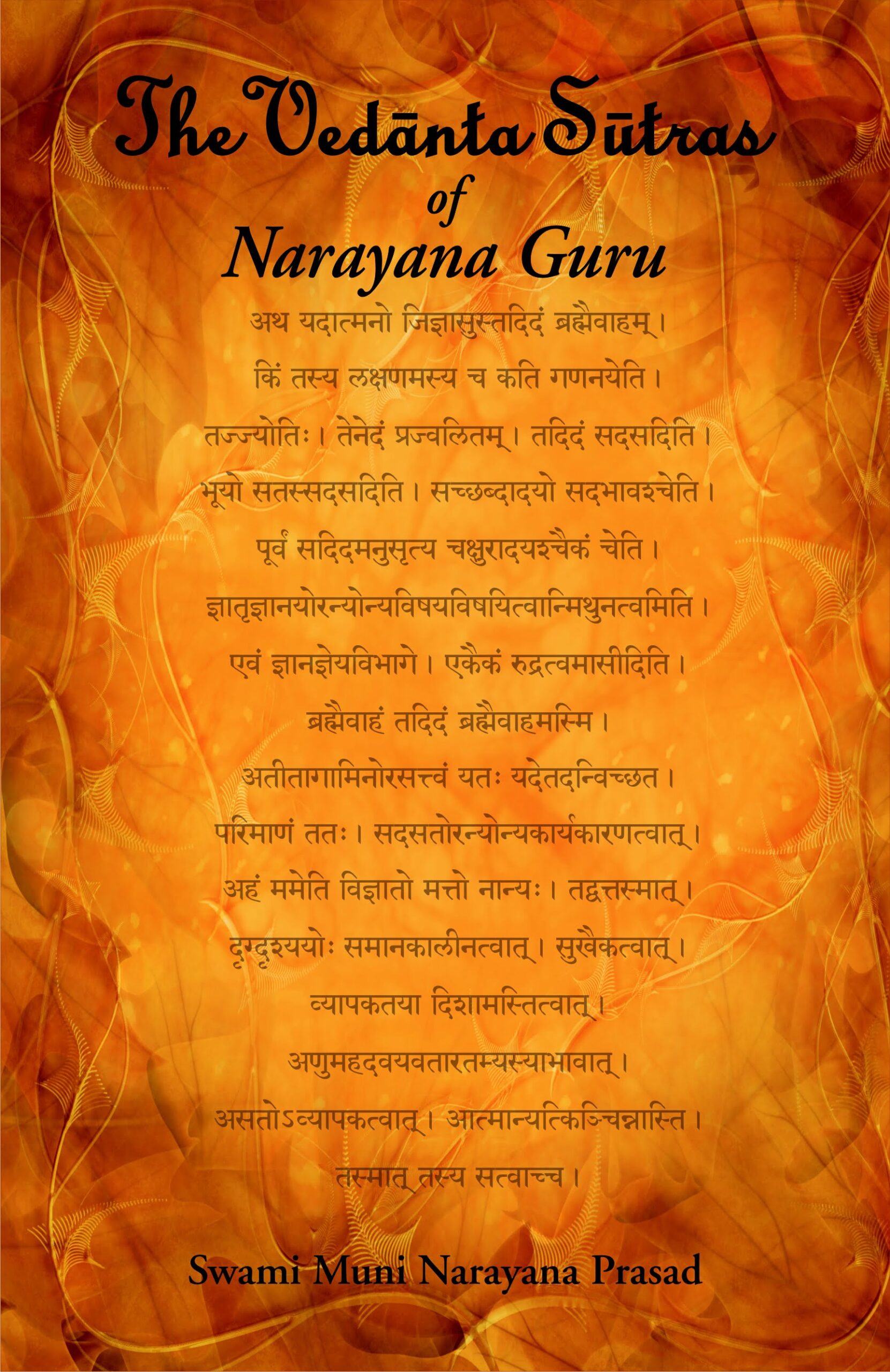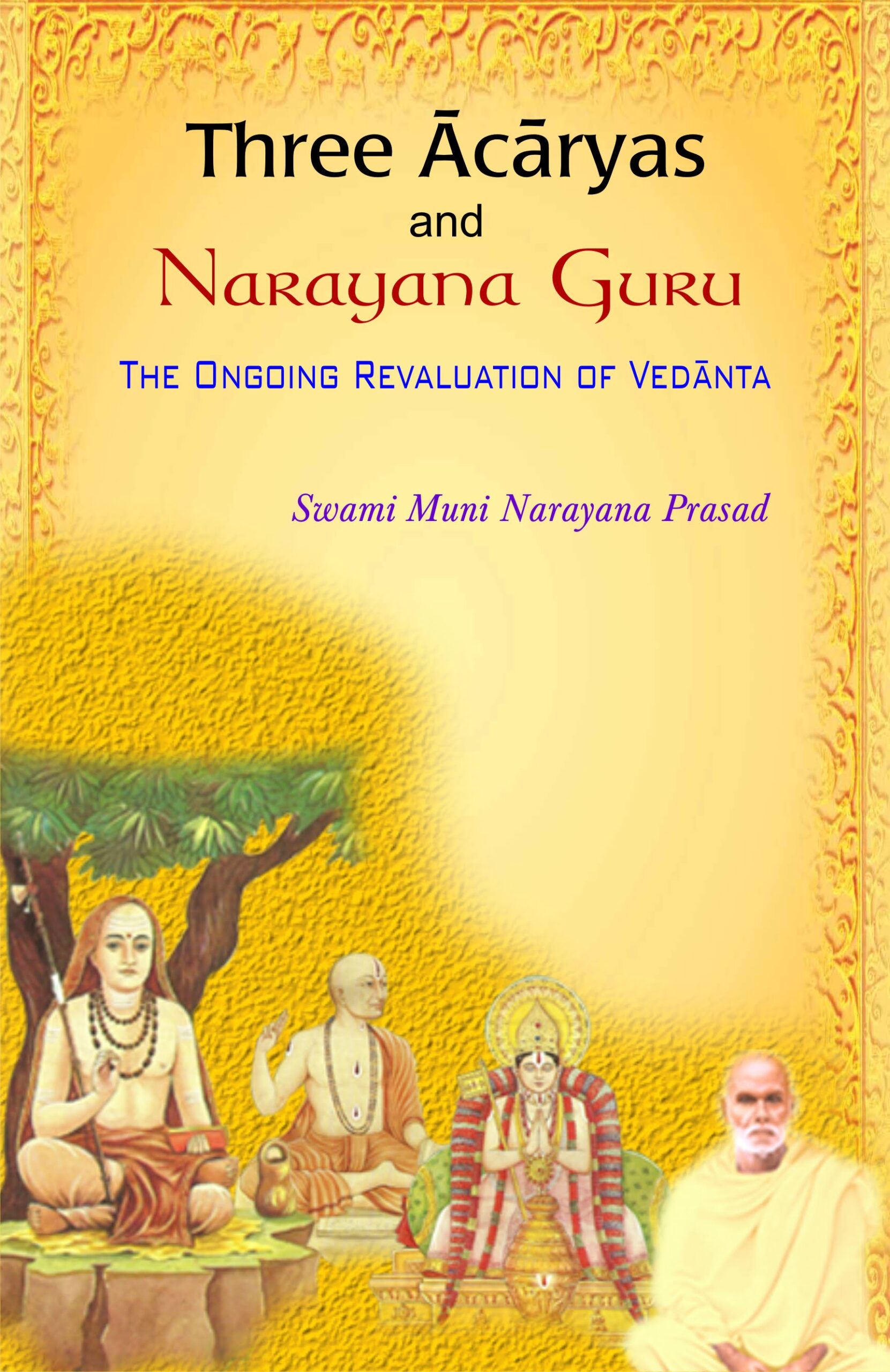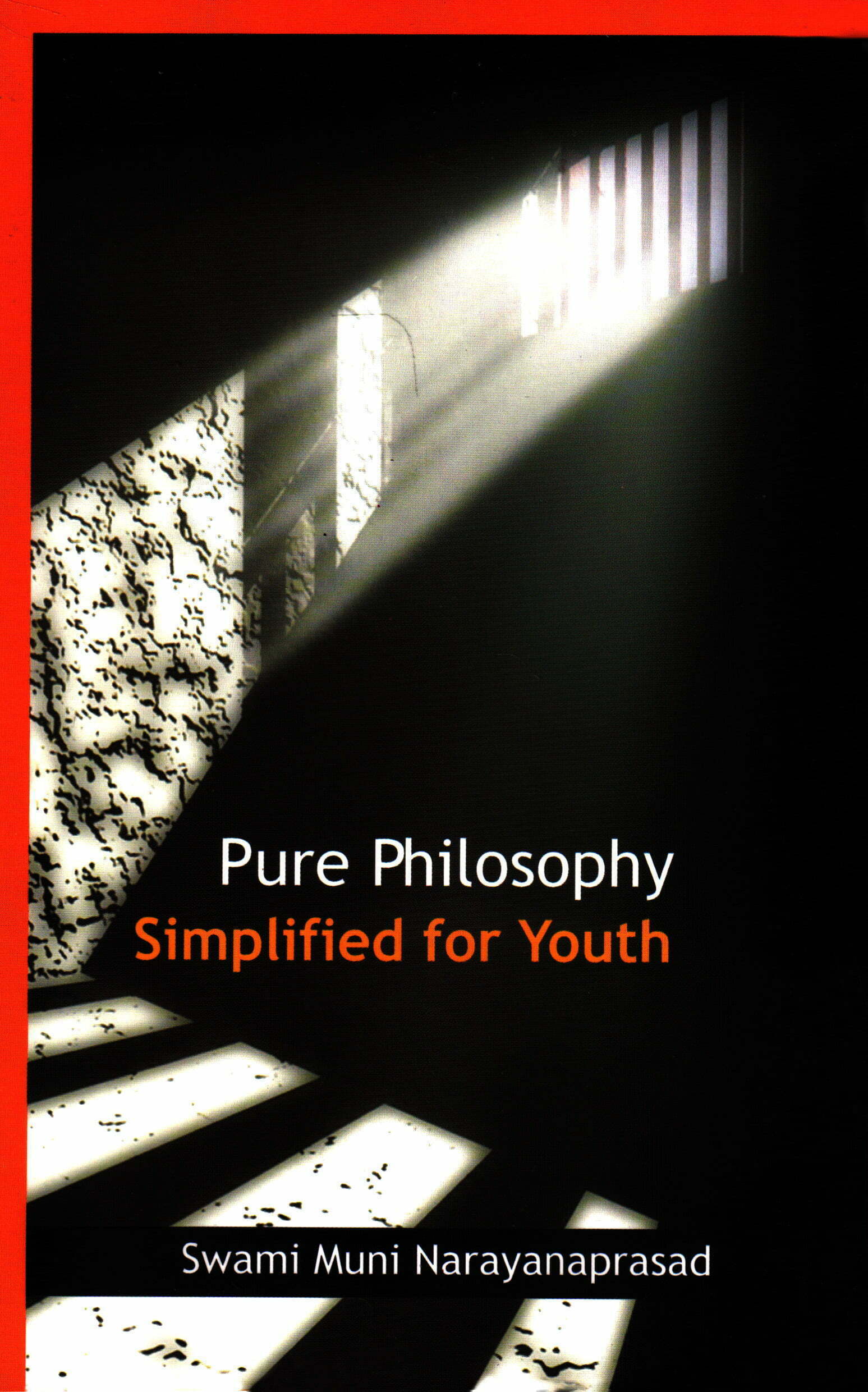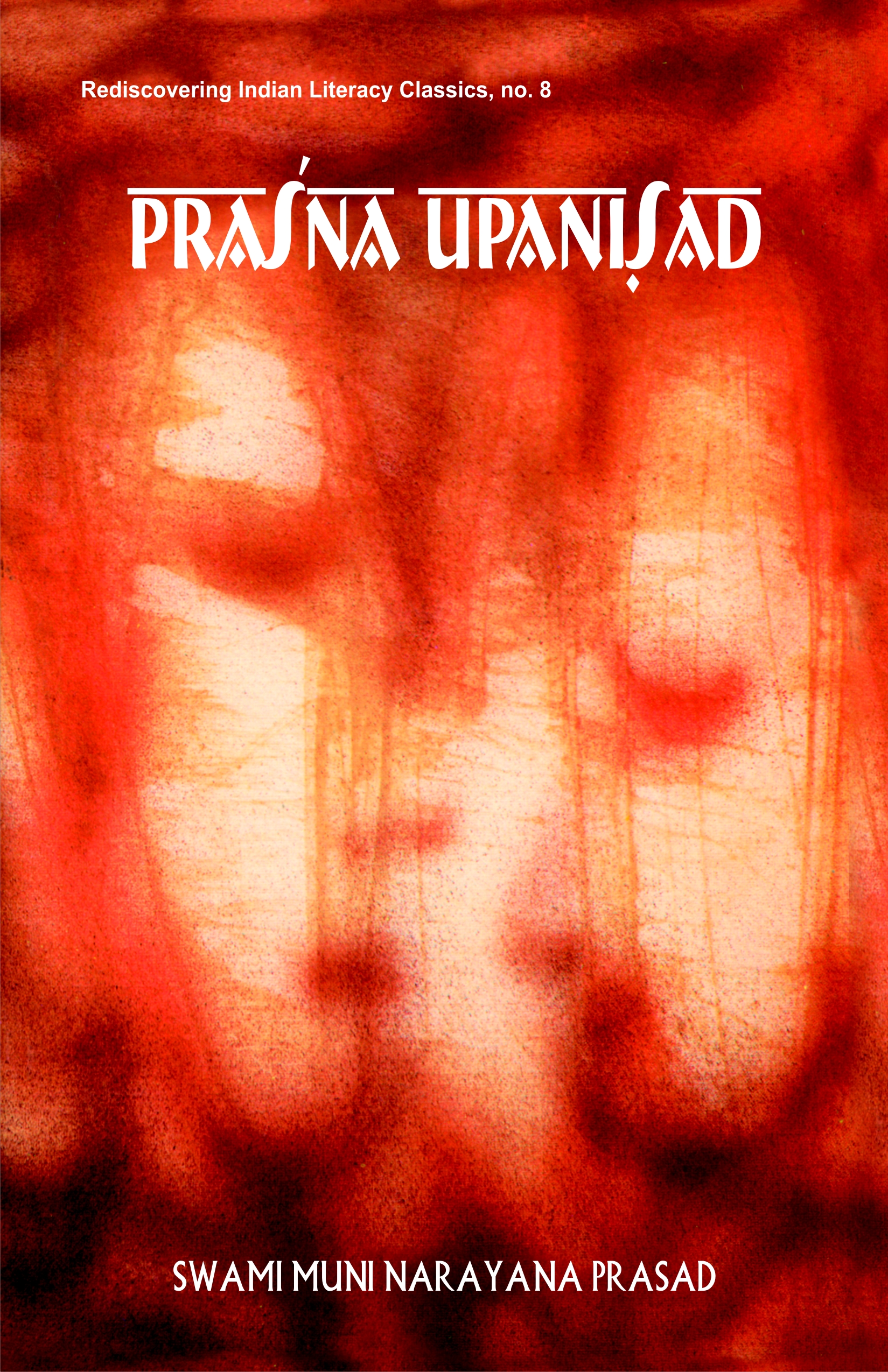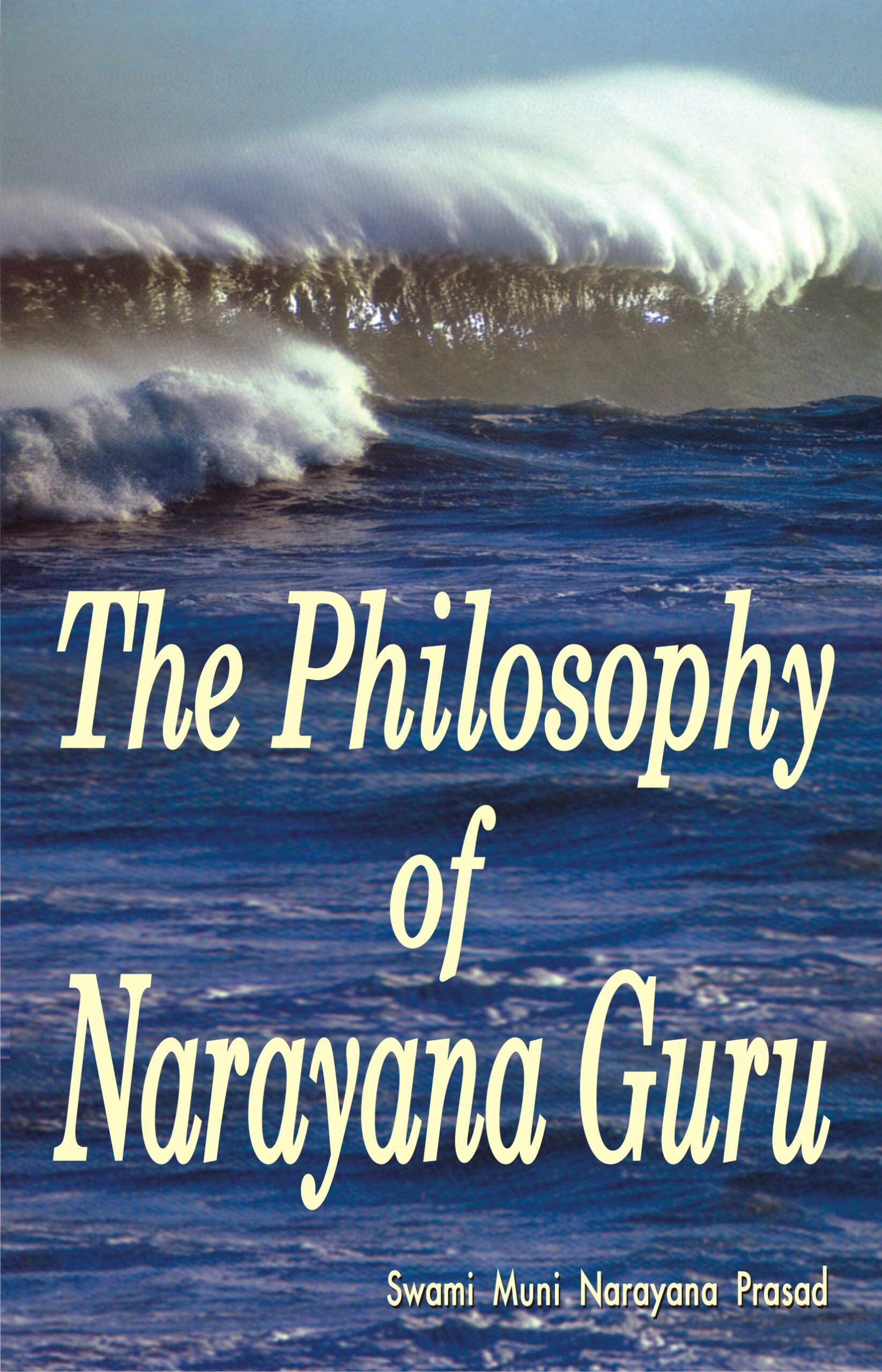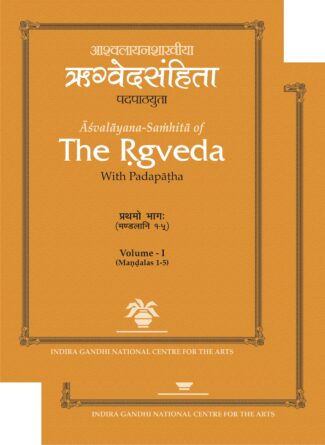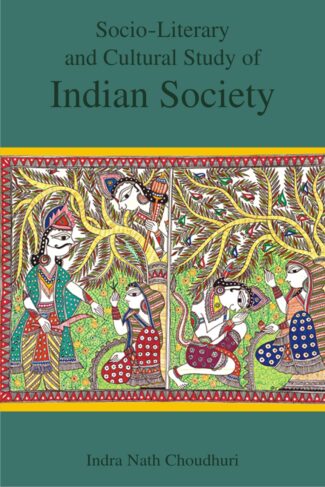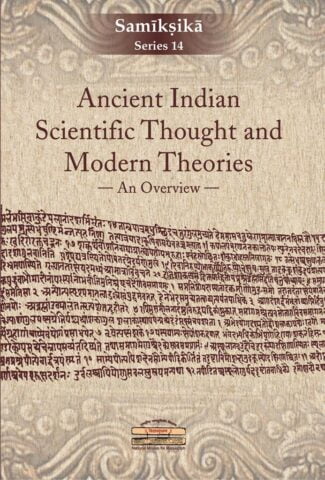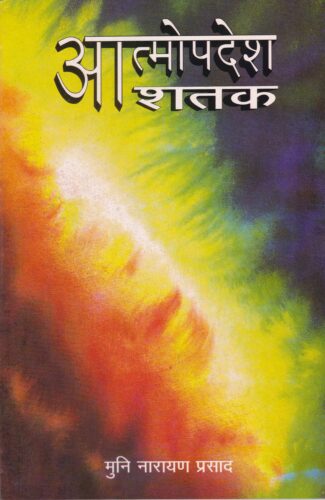
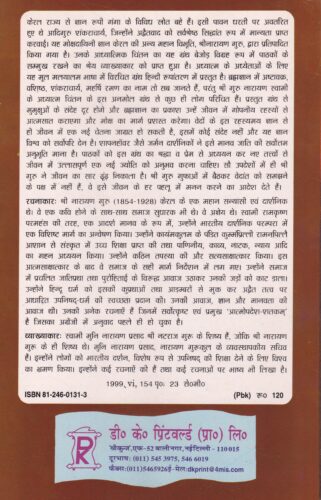
Atmopadesh Satak...
Atmopadesh Satak
One Hundred Verses of Self-Instruction by: Narayana Guru , Swami Muni Narayana PrasadAtmopadesa Sataka, mentioning one single principle, explains that mere virtue of gaining knowledge is not an end in itself. Its usefulness should be seen in the social, religious and veneration realms.
₹120.00 Original price was: ₹120.00.₹108.00Current price is: ₹108.00.
ISBN: 9788124601310
Year Of Publication: 1999
Edition: 1st
Pages : iv, 156
Language : Hindi
Binding : Paperback
Publisher: D.K. Printworld Pvt. Ltd.
Size: 22 cm.
Weight: 200
Atmopadesa Sataka, mentioning one single principle, explains that mere virtue of gaining knowledge is not an end in itself. Its usefulness should be seen in the social, religious and veneration realms.

- Sale!Asvalayana-Samhita of The Rigveda (2 Vols. Set) by: B.B. Chaubey
₹2,500.00Original price was: ₹2,500.00.₹2,250.00Current price is: ₹2,250.00.Among the twenty-one Sakha-Samhitas of the Rigveda, as mentioned by Patanjali, only seven Samhitas were known by name and among these too, only one Sakala-Samhita was available in printed form so far. Now with the publication of the present editon of the Ashvalayana-Samhita a complete picture of a new Sakha-Samhita will come to fore for the first time. In comparison to the Sakala-Samhita, the Ashvalayana-Samhita has 212 additional mantras among which some occur in the common suktas and others form 16 additional complete suktas. Among these additional suktas special mention may be made of Kapinjala-sukta (II.44), Lakshmi-sukta (V.88-89), Pavamana-sukta (IX.68), Hiranya-sukta (X.130), Medha-sukta (X.155) and Manasa-sukta (X.171).
The book in two volumes presents the full text of the Ashvalayana Samhita of the Rigveda with padapatha, marked with proper accent marks. The additional mantras of the Ashvalayana Samhita followed by their translation in English and Hindi are also provided at the end of the Samhita text.
In a detailed introduction of the text the learned editor has examined the existence of Sakha-Samhitas of the Rigveda as mentioned by the Puranas, Patanjali, Mahidasa and other authorities, scrutinising textual evidence in support of them. The focus is, however, on the Ashvalayana-Samhita, with a background on Acarya Ashvalayana and exploring the antiquity, treatment of accent and padapatha of the text by referring to various sources. - Sale!Socio-Literary and Cultural Study of Indian Society by: Indra Nath Choudhuri
₹1,500.00Original price was: ₹1,500.00.₹1,350.00Current price is: ₹1,350.00.The Socio-Literary and Cultural Study of Indian Society from Ancient to Modern is a search for India’s heritage: Hindu, Sufi and about Nationalism and India’s freedom from her colonial past. It is analytical but not learnedness. The author believes as Iqbal, the famous Urdu poet, said: “Transcend your reason because though it is a glow, it is not your destination; it can only be the path to the destination show.” People, both Indian and foreign, who want to understand Indian heritage from Ancient to Modern in a simple, agreeable style and friendly manner, is the author’s destination. In this volume, he has tried to demolish many myths like dharma is religion, Vedas are Śruti though the Almighty ordered six ṛṣis to write them down. A Hindu is just not emotional in mind, he also believes in analytic discussion (tarka). Upaniṣads are not just created by ṛṣis but also by a revolution unfolded by the students by barraging questions after questions.By explaining about the vitality of India and many other subjects, the book elucidates many things about the idea of India in an authentic manner. The readers will find here many varieties of theological explication, ultimately leading to the celebration of life while searching for the divine and realizing the self.
- Sale!Aditya Hrdayam by: Swami Tattvavidananda Saraswati
₹180.00Original price was: ₹180.00.₹162.00Current price is: ₹162.00.The ancient Indian tradition and literature accords a supreme place to the Sun in the order of divinities, revering and worshipping it as the life-force of the Universe and the highest Reality. The commentary by Swami Tattvavidananda Saraswati in this volume comes as an attempt to unravel the power and mystique of the Sun as explained in the Aditya Hrdayam, a small canto chapter offering obeisance to the Sun God in the immortal epic, Srimadramayanam of Adikavi Valmiki. The book presents the original Sanskrit mantras of the Aditya Hrdayam along with their Roman transliteration and lucid English translation. The verses are accompanied by detailed annotations that describe every term, concept and idea with great clarity. The commentary, easy to follow and fluent in flow, explores the secret of the eternal stotra, Aditya Hrdayam conveyed by Sage Agastya to Lord Rama using which the latter emerged victorious over Ravana. Aditya Hrdayam is hailed as one of the greatest tributes to the Sun by our ancient sages that provides insights into the importance of the Sun as the creator and sustainer of the Universe, the ultimate source of all wealth. The commentary involves copious references to Taittiriya Samhita, Taittiriya Aranyaka, Taittiriya Upanisad, Chandogya Upanisad, Srimadbhagavadgita, etc. , which make it all the more comprehensive and scholarly.
- Sale!Buddhist Theory of Meaning and Literary Analysis by: Rajnish Kumar Mishra
₹900.00Original price was: ₹900.00.₹810.00Current price is: ₹810.00.For over two millennia, language has been one of the prime concerns in nearly all philosophical systems of India: Grammar, Mimamsa, Nyaya, Vaisheshika, Jaina and Bauddha which, in turn, not only have shaped the Indian perception of vak, but also constitute the essential background to study the major concerns of language that have been taken up in the subsequent phases of philosophical-linguistic developments. Rajnish Mishras book offers a fresh, in-depth exposition of the Buddhist theory of meaning (apohavada) against this stupendous backdrop of Indian linguistic thought and also tries to show how this time-honoured theory is positioned vis-a-vis the current issues and assumptions in language. Surveying the evolution of apoha across the ages specially in its four kindred perspectives, viz, the Abhidharmika, the Sautrantika, the Yogacara and the Madhyamika schools of Buddhist philosophy, the author sets out, on its basis, a cognitive-epistemological model for literary analysis and illustrates as well the applicational aspects of this model with meticulous analysis of Wordsworths poetic masterpiece, Tintern Abbey. Based, as it is, on wide-ranging primary sources, including the Buddhist philosophical-epistemological texts in Sanskrit, the book sheds altogether new light on the Buddhist theory of meaning and, simultaneously, argues against the fallacies that have cropped up around its latter-day interpretations. A work of specific contemporary relevance to the ongoing post-structuralist debates, the book also carries a comprehensive, highly valuable cross-referential glossary of conceptual Sanskrit terms.
- Sale!Ancient Indian Scientific Thought and Modern Theories by: Dhirendranath Banerjee, Sanjit Kumar Sadhukhan,
₹350.00Original price was: ₹350.00.₹315.00Current price is: ₹315.00.The experiences and knowledge from our past are recorded in manuscripts which have been handed down to us over several thousand years. The Government of India, through the Department of Culture, took note of the importance of this vast tangible heritage and, in order to preserve and conserve as well as to make access to this wealth easy, established the National Mission for Manuscripts (NMM). In order to disseminate the knowledge content of manuscripts, the Mission has taken up several programmes such as lectures, seminars and workshops. The Mission has published the proceedings of the above-said programmes under the following series: Samraksika (on conservation), Tattvabodha (comprising lectures based on manuscripts delivered by eminent scholars), Samiksika (research-oriented papers presented in the seminars), Krtibodha (transcribed and edited texts prepared at advanced level manuscriptology workshops conducted by NMM) and Prakasika (publication of rare, unpublished manuscripts).
Ancient Indian Scientific Thought and Modern Theories makes one revisit the development of Indian science and technology in varied fields since the Vedic period, and suggests that we have a living tradition which is vivid and dynamic, inheriting at the same time claiming freedom from the past. It is the proceedings of a three-day seminar held during 25-27 March 2017 in Kolkata, organized by the Sanskrit Sahitya Parishad, Kolkata, and sponsored by NMM. This volume bears testimony to the fact that Indian sages, philosophers and scholars had a grip on all the topics that the modern-day scientists deal with, including complicated surgery and quantum mechanics. Our Vedas, Upanisads and other literary works were the storehouse of scientific wisdom, though the prevailing socio-religious conditions impeded its widespread dissemination.
This volume is expected to invoke keen interest among all who wants to know about a scientific past that Indians inherit, be a scientist or a layman.


